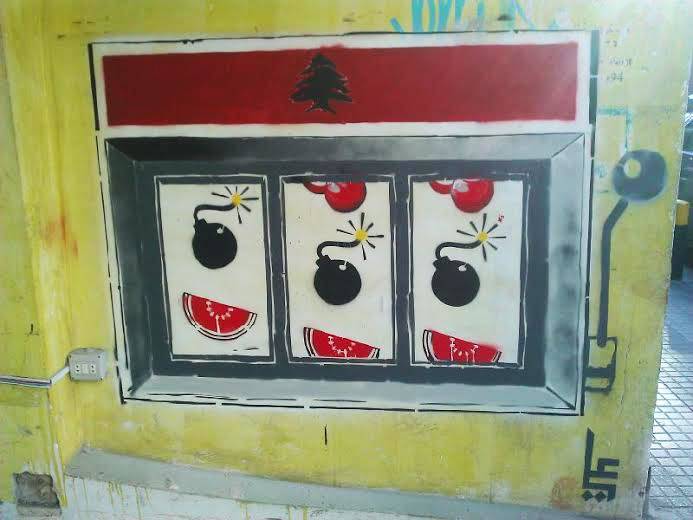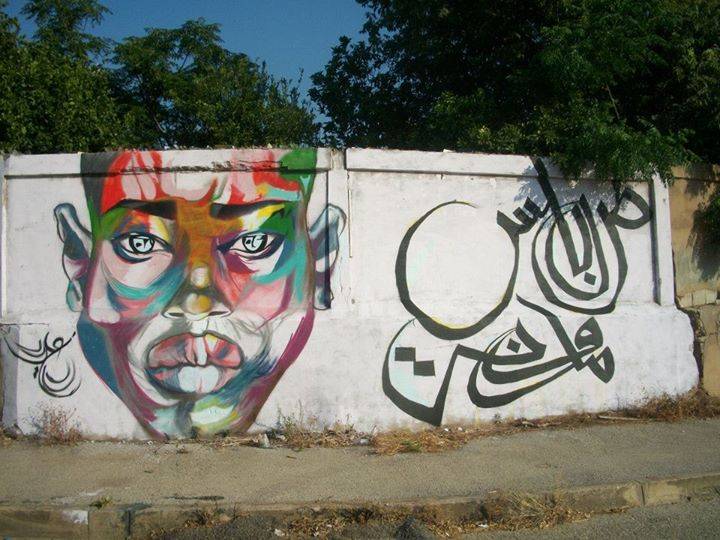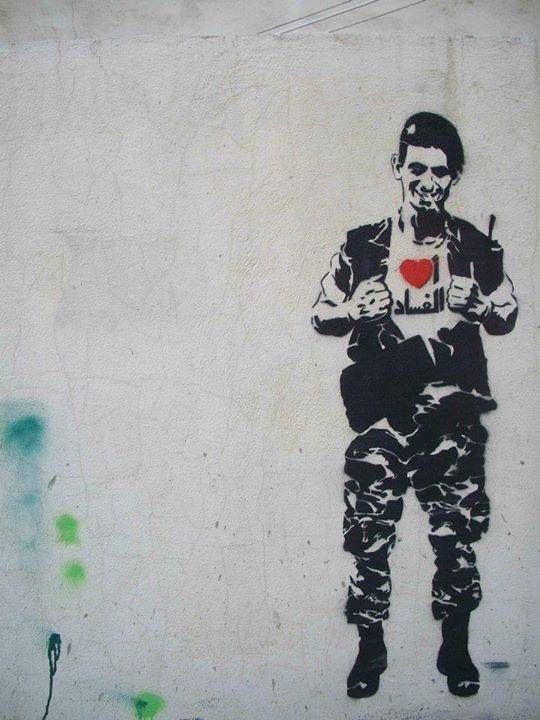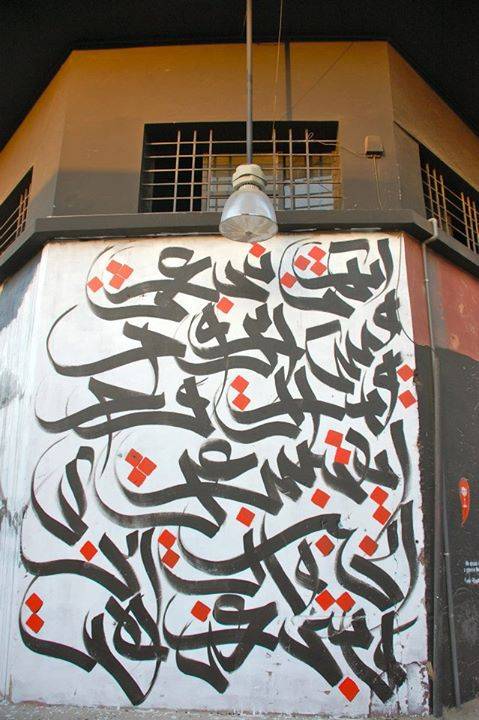Street Artist Ali Rafei: An ‘Honest’ Vandal
When you have something to say, you just say it. But when most media networks around you are politically biased and arbitrary censorship runs rampant, then you have no choice but to spray it. This has been the mode of action chosen by many young Lebanese talents who take to the walls of the city to make their voices heard through the mediums of graffiti and street art.
One such artist is Tripoli’s Ali Rafei, 28, who aims to beautify the streets of Tripoli and Beirut and confidently speak his mind, one act of vandalism at a time.

Street Artist Ali Rafei, 28, creates bold art and unapologetic statements on the walls of Tripoli and Beirut. (Photo via Facebook)
As a student of the Lycée Franco-Libanais Tripoli, Rafei was always fascinated by art, but did not consider himself an artist. He would later pick up the skill of graffiti tagging from a Belgian classmate who had a passion for its stylized lettering, and begin tagging numerous school desks with the name Acids Punk and spray the word “félicitation” in celebration of a friend’s report card. But that was as far as Rafei would venture into visual art.
After graduating in 2003, Rafei went through a period of disorientation, moving between majors, until he completed a business degree. During that period ideas would occur to him that he would not execute. They were a load too heavy to bear, until eventually, they began to drop on paper, on university desks and on walls. In the months leading up to his graduation in 2011, Rafei took to the streets of Tripoli and Beirut to unleash his pent-up inspiration.

One of Rafei’s recent stencils sprayed in February 2014 in Hamra (Photo via Facebook)
What followed was a total immersion into street art, as Rafei began exploring new mediums such as spray paint, wheatpaste, brushes and stencils, in addition to acquiring new techniques, incorporating the noble art of calligraphy into his works. Rafei’s output and subject matter are eclectic, ranging from large-scale portraits of human faces to elaborate calligraphic phrases to detailed stencils taking aim at politics and society.

A piece of graffiti created by Rafei in September 2012 reads, “I ♥ Corruption.” It has since been removed. (Photo via Facebook)
One of Rafei’s most well-known pieces doesn’t even exist anymore. The piece was a stencil first sprayed on an evening outing in September 2012 in Hamra, along with visiting Egyptian artist Ganzeer. The stencil in question shows an ISF officer pulling aside his uniform to reveal a t-shirt underneath that reads “I ♥ Corruption”. ISF officials had the stencil blacked out the very next day.
In a country where the political insignia sprayed, attached and plastered all over the city has been left untouched since the conclusion of the civil war, the removal of this one single act of self-expression speaks volumes. “I kind of made it as a joke, like ‘you think you’re so great. Look at this, this is you. If you wanna do something about it, do something, or just erase it’. They erased it; they don’t wanna do anything about it,” explains Rafei.

A calligraphic mural by Rafei painted near the Beirut Art Center in September 2012 as part of the White Wall Project (Photo via Facebook)
The society Rafei inhabits, and often criticizes, continues to exist in a state of denial and illusion. Politicians lying to citizens, citizens lying to citizens, politicians lying to politicians: a nation deceiving itself and the world. “People are not clear in this country, with each other. Lots of what is said is not turned into reality, we talk a lot. We lie a lot,” says Rafei, adding “Telling white lies is necessary in your daily life, but honesty makes you progress more.”
Check out more of Rafei’s street art on Facebook.